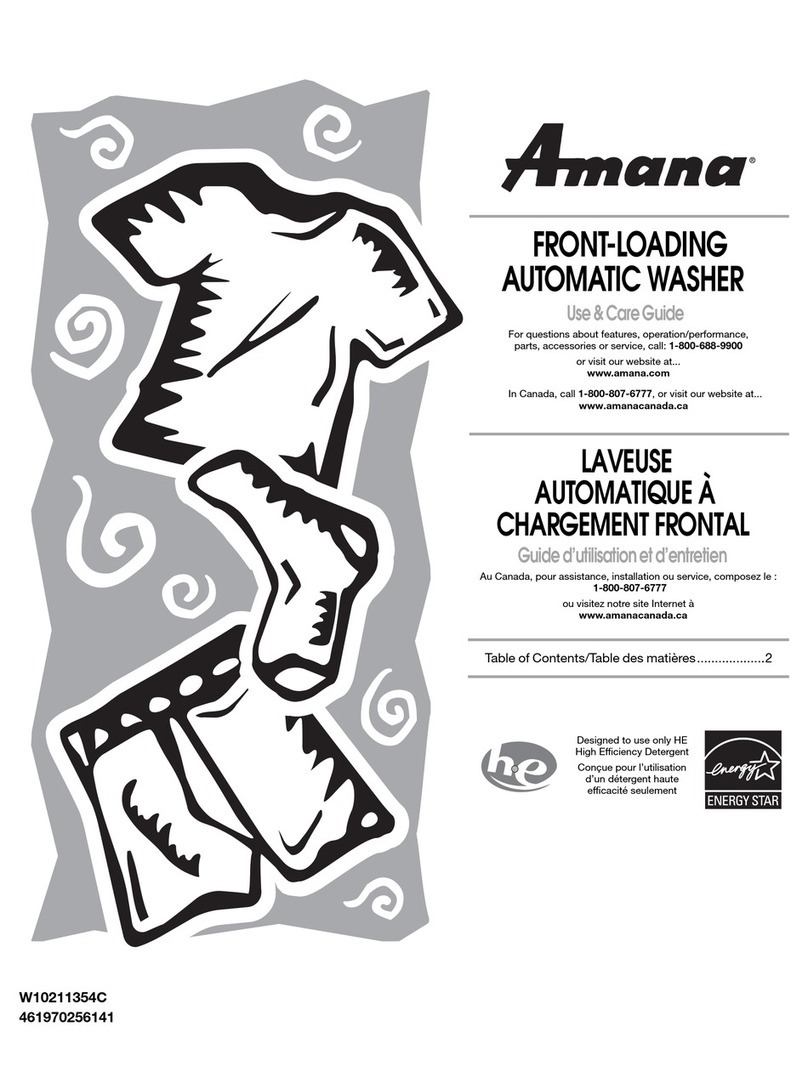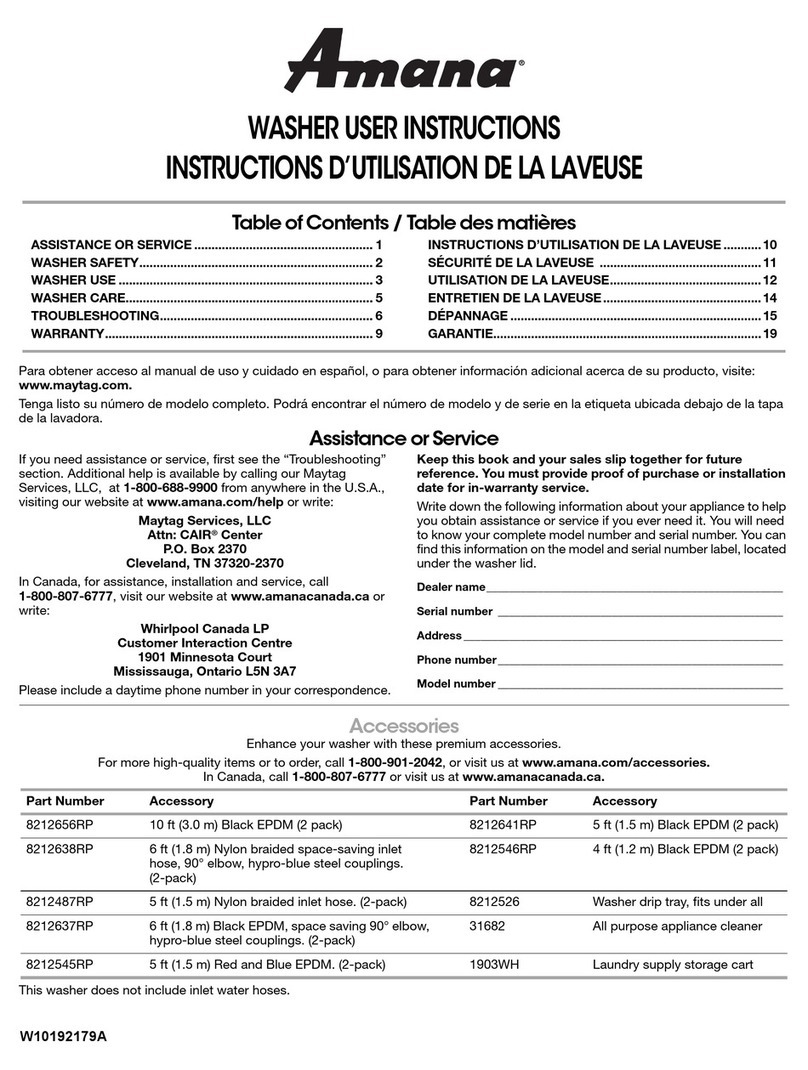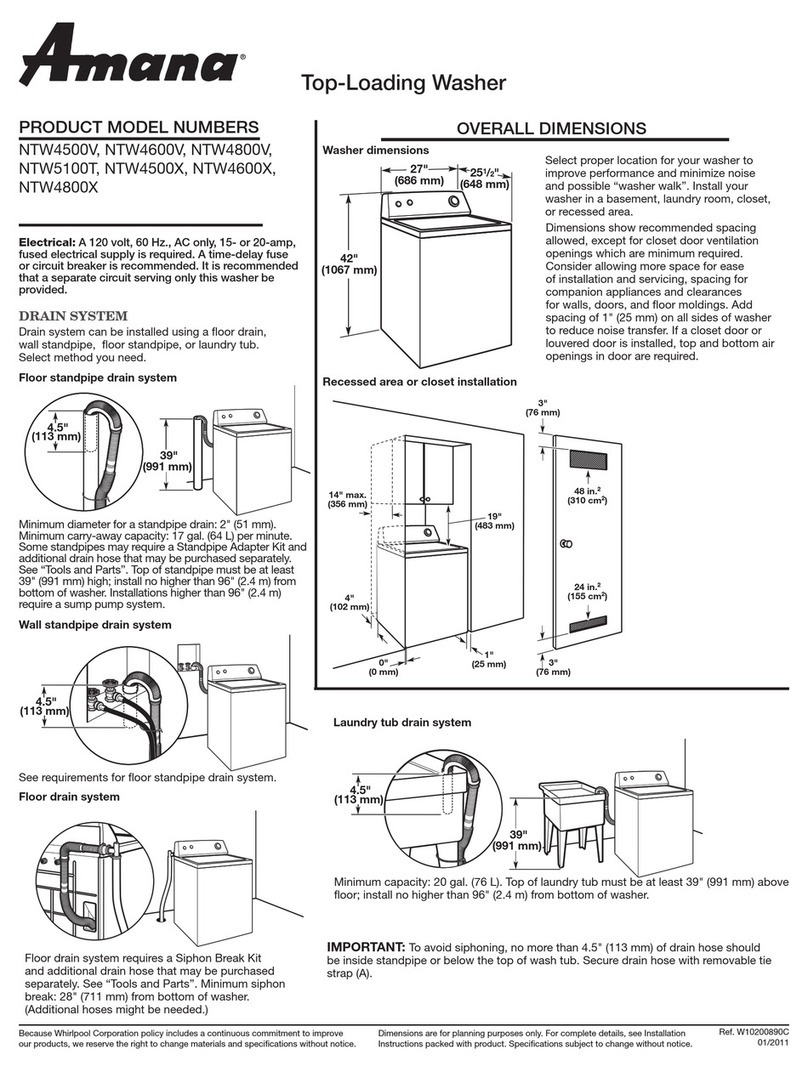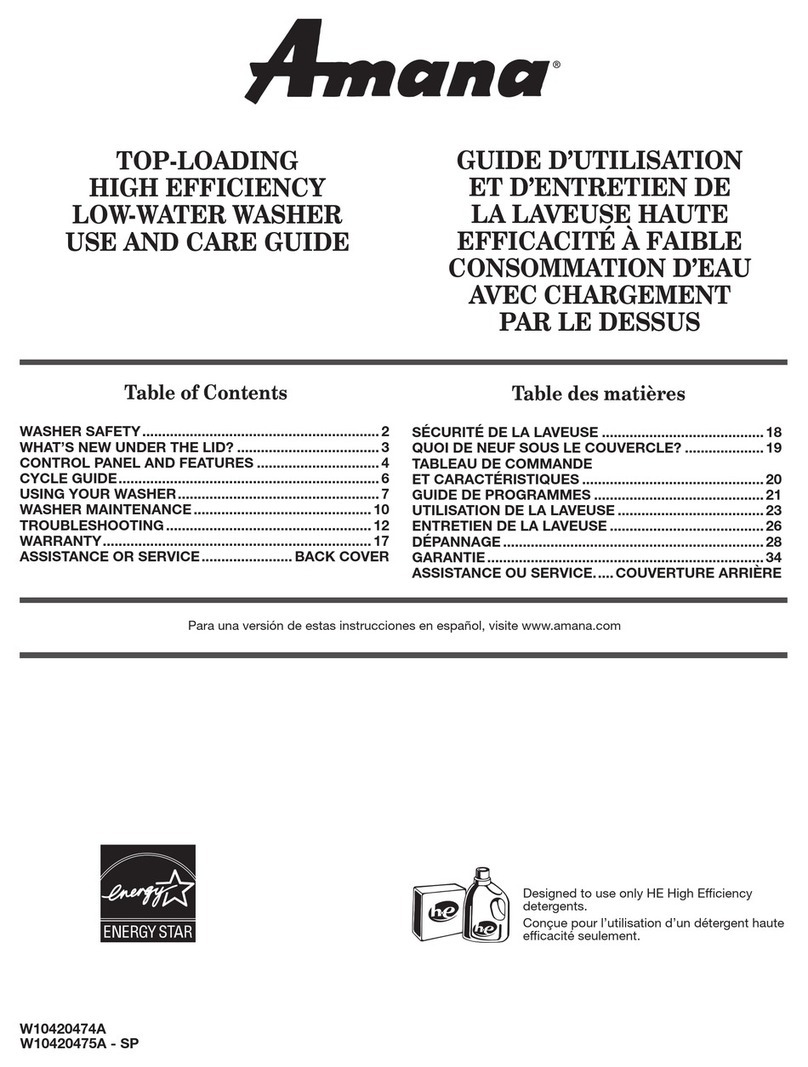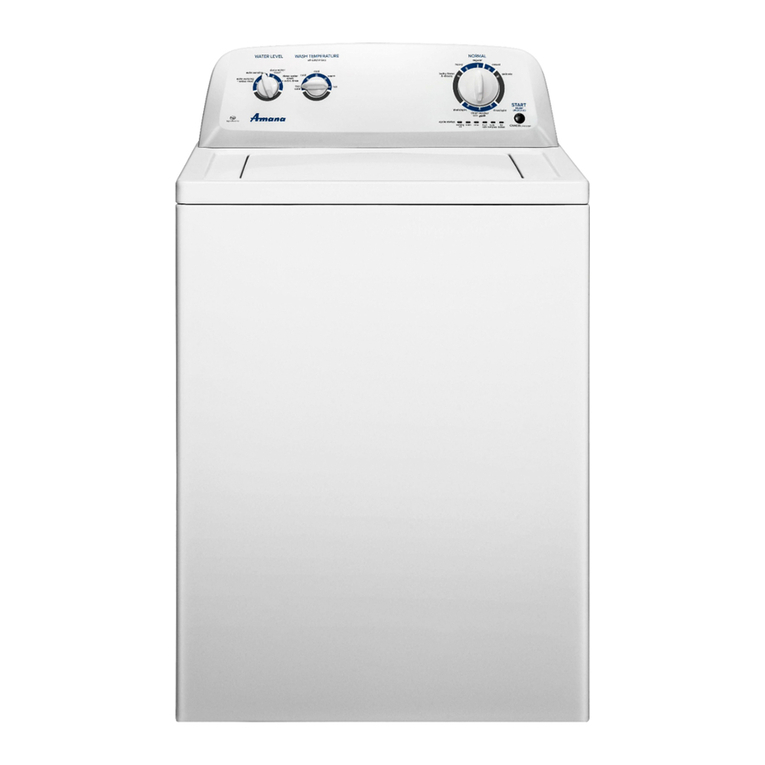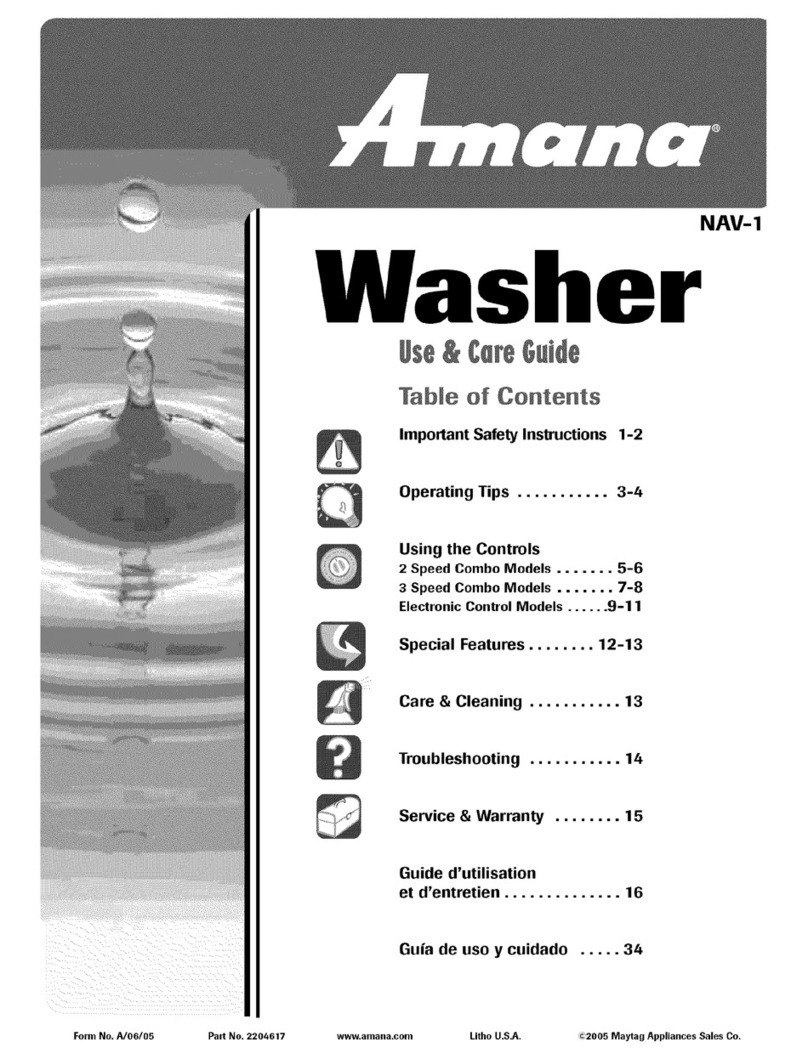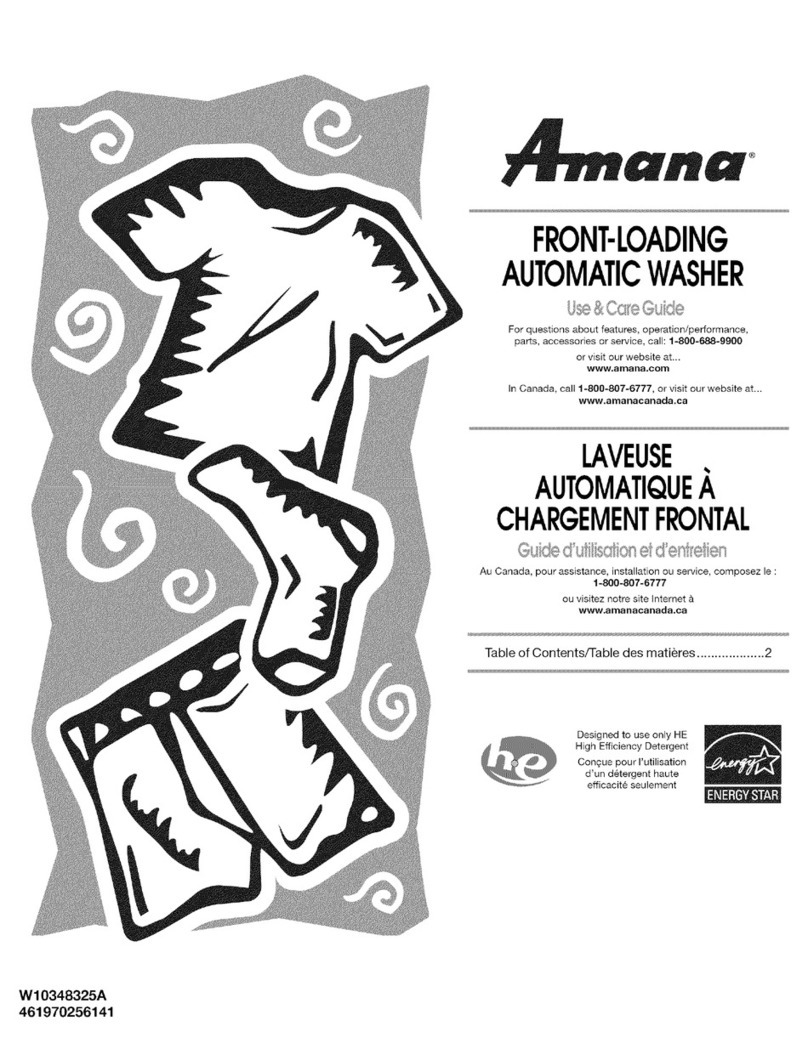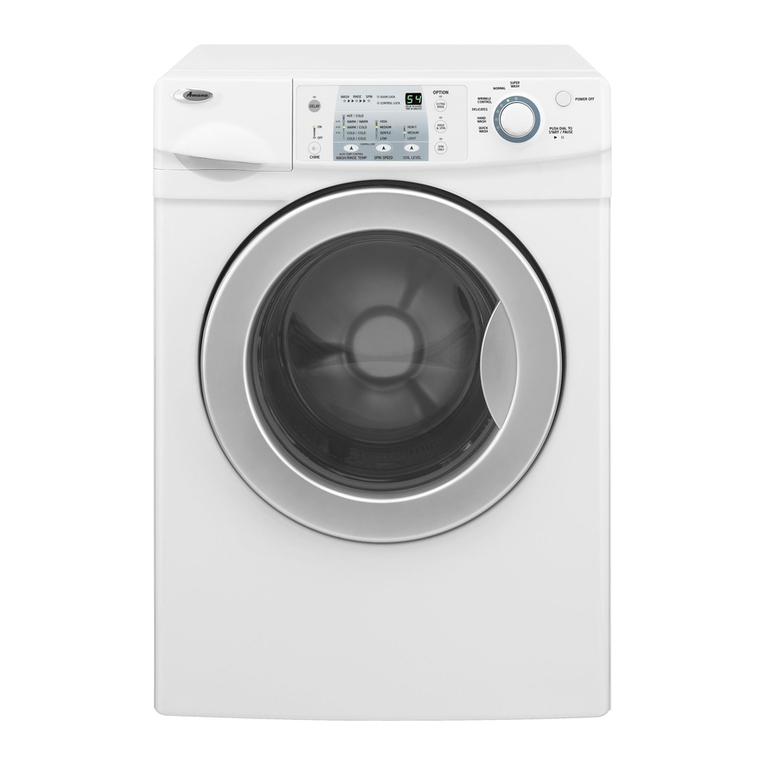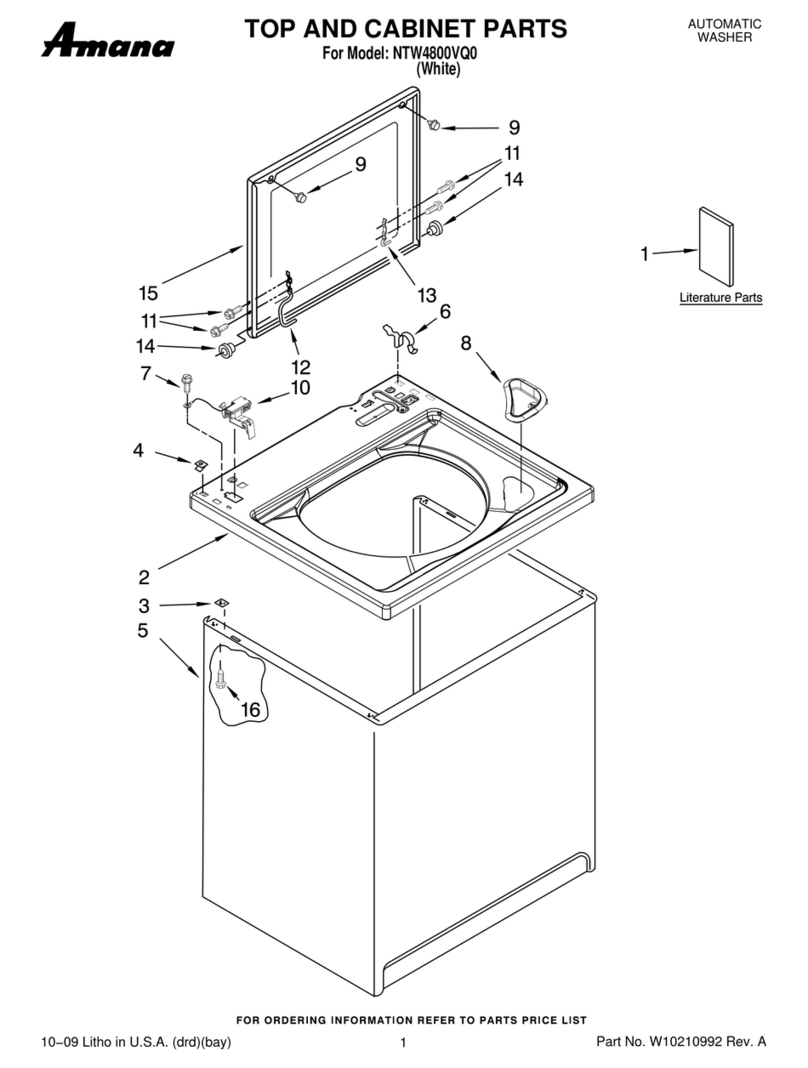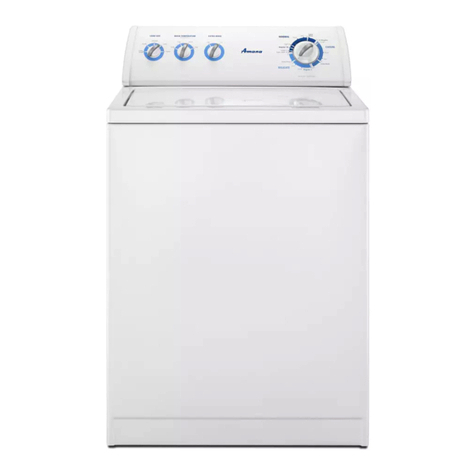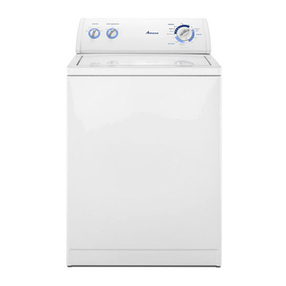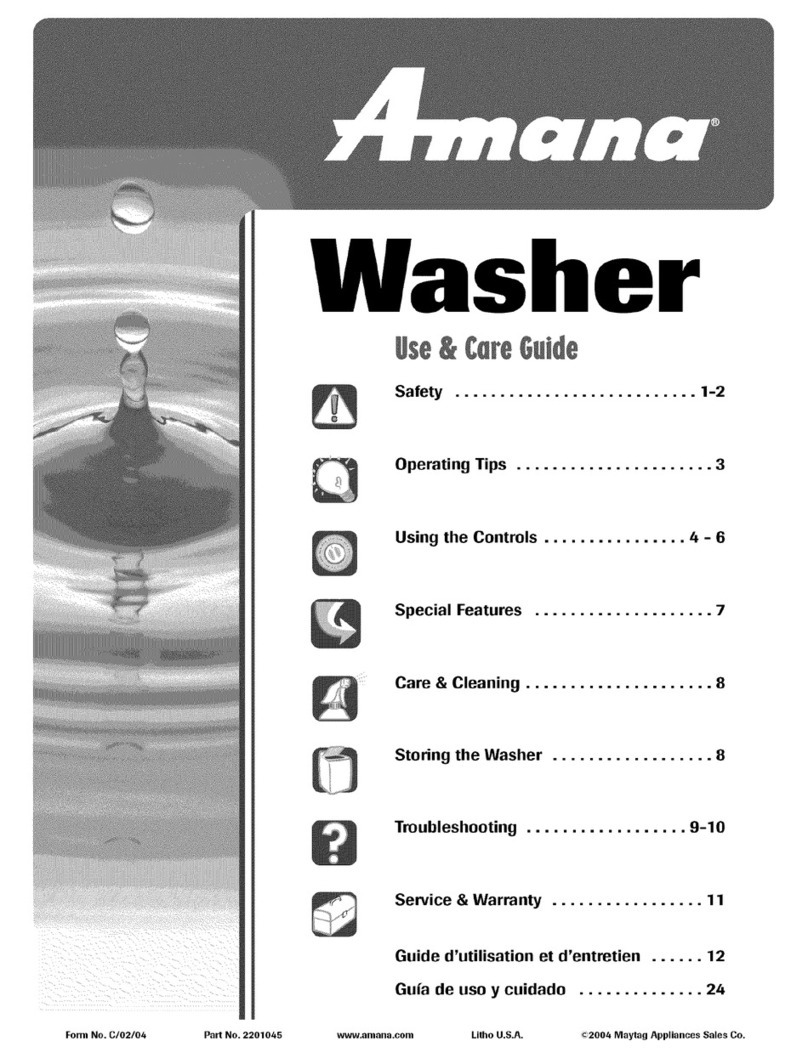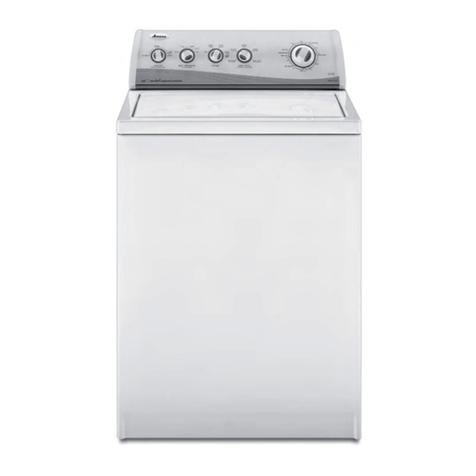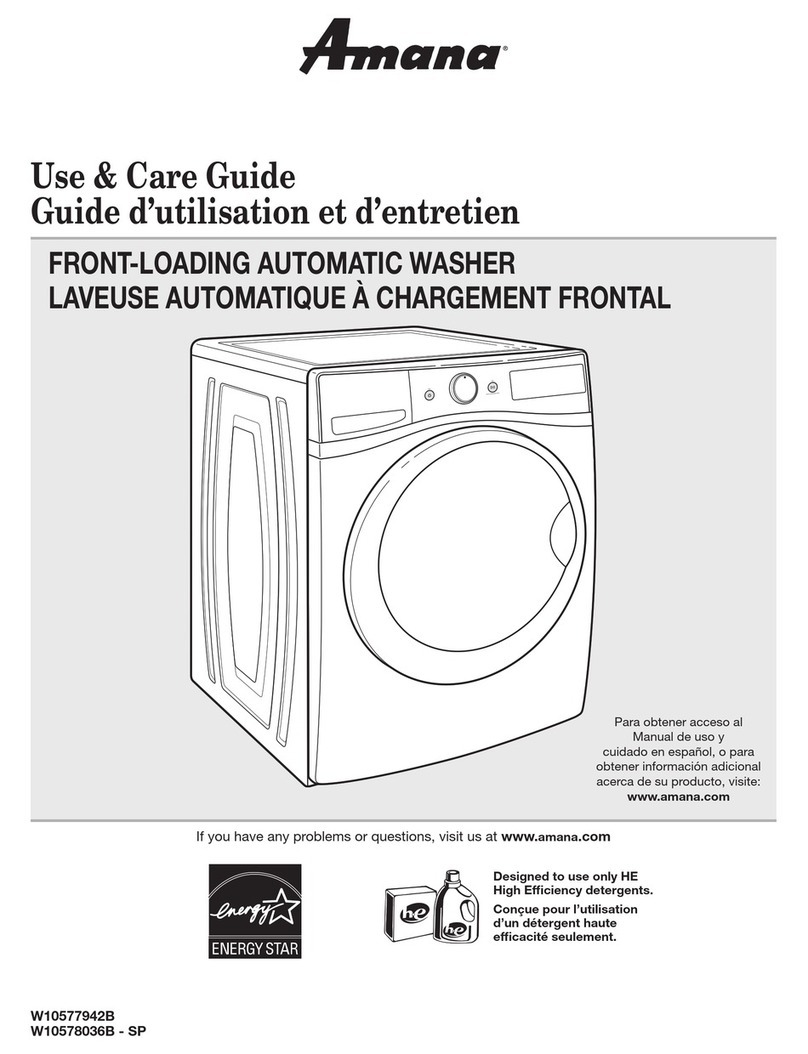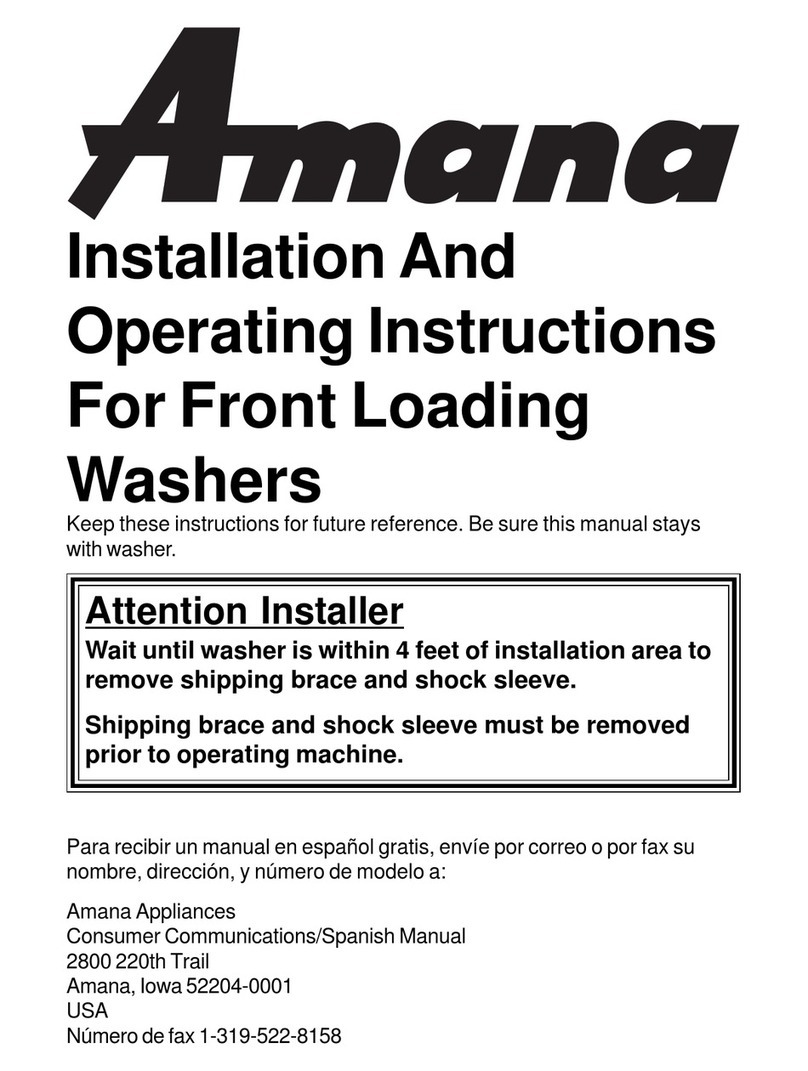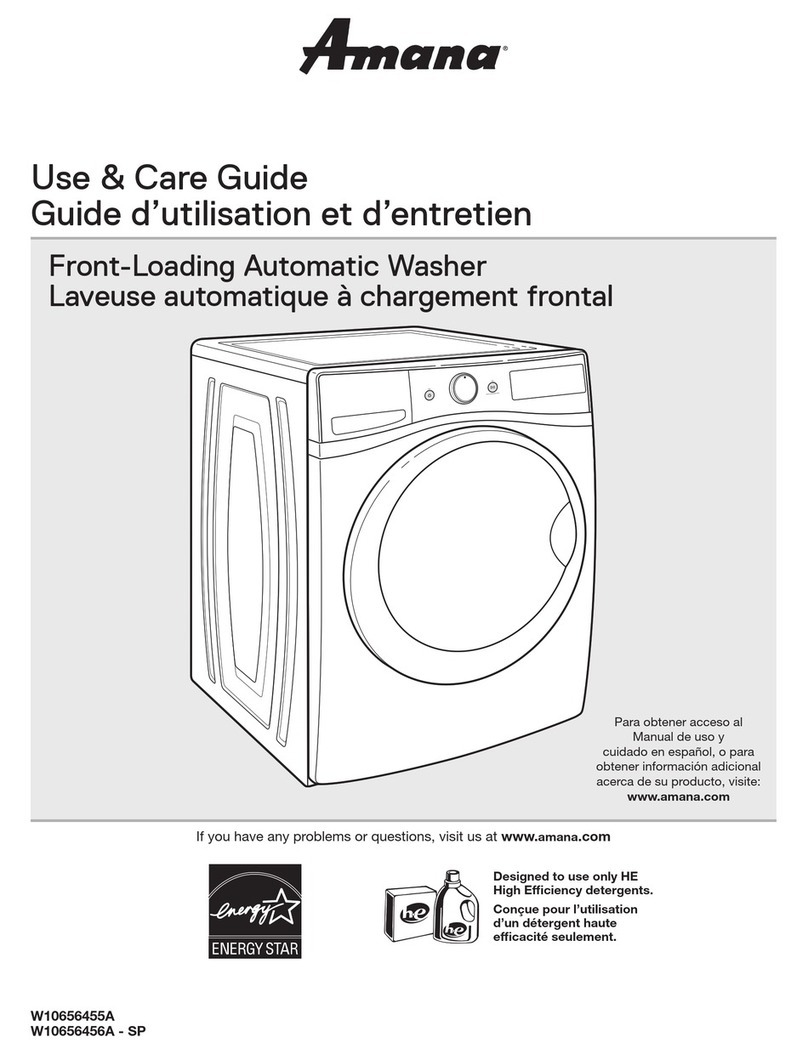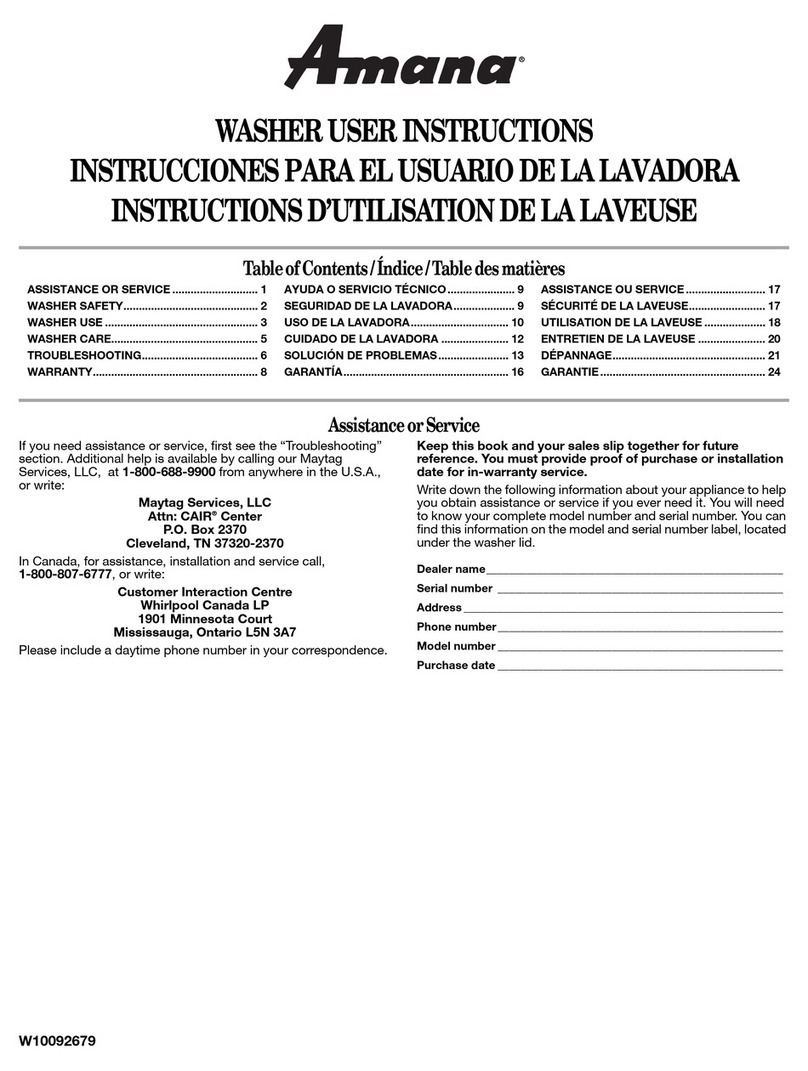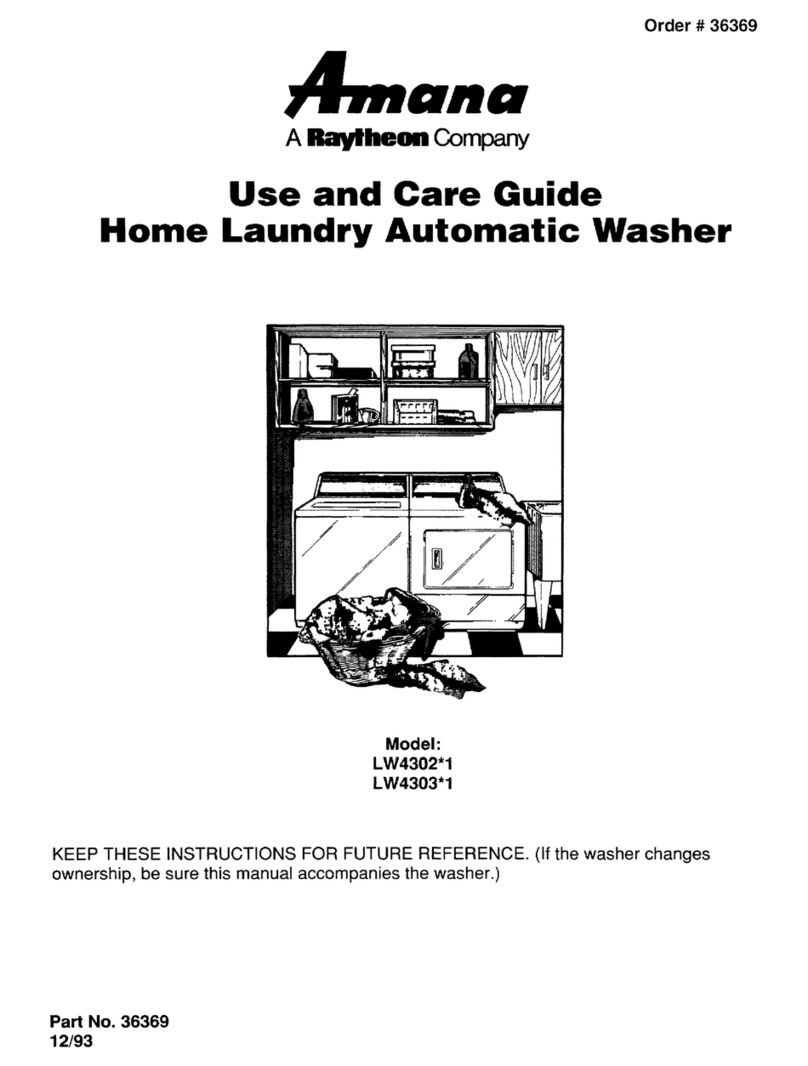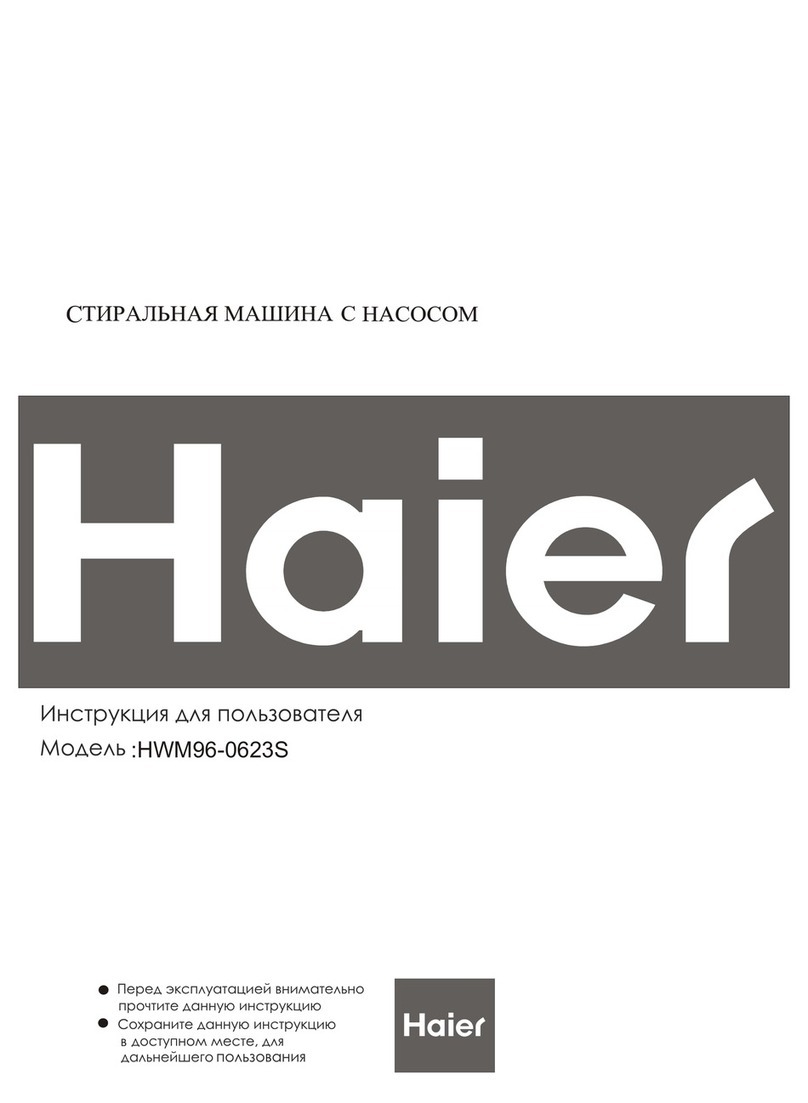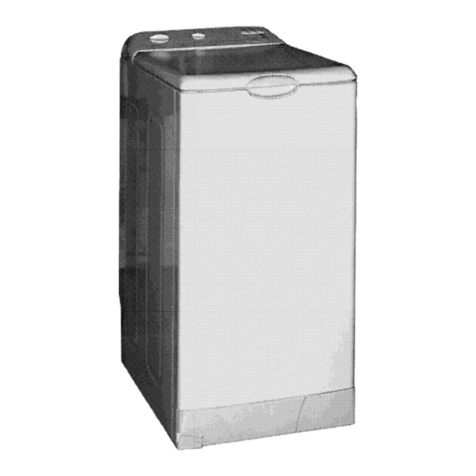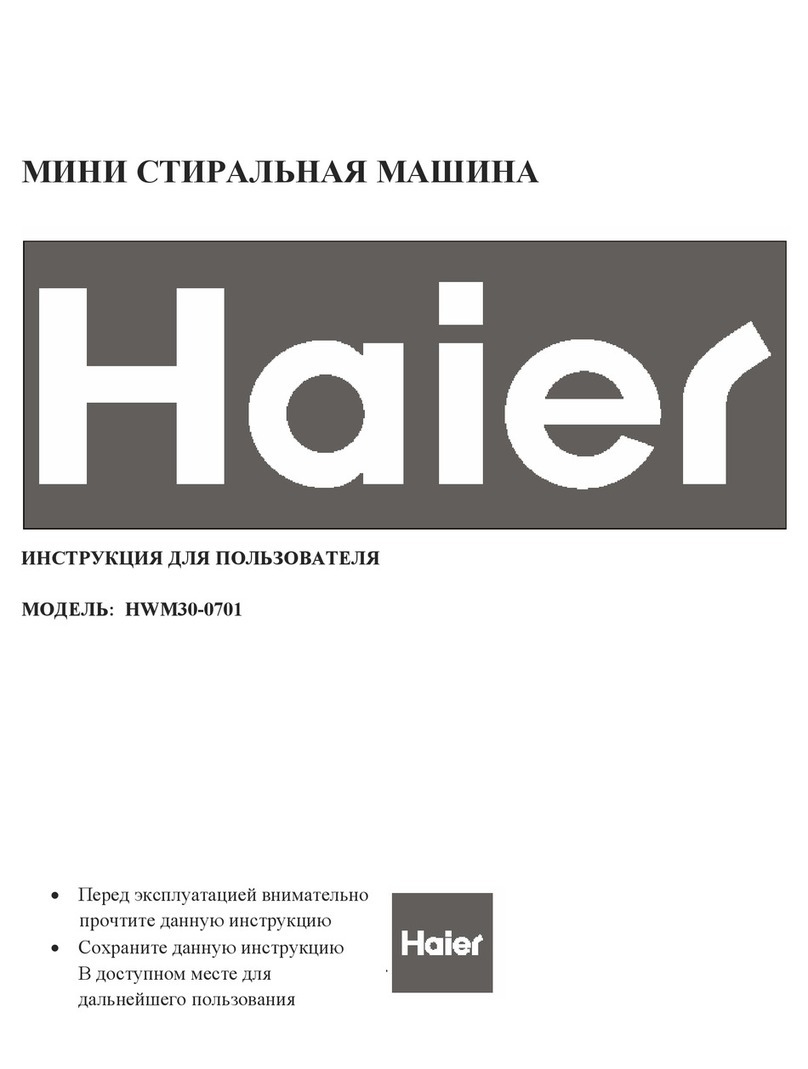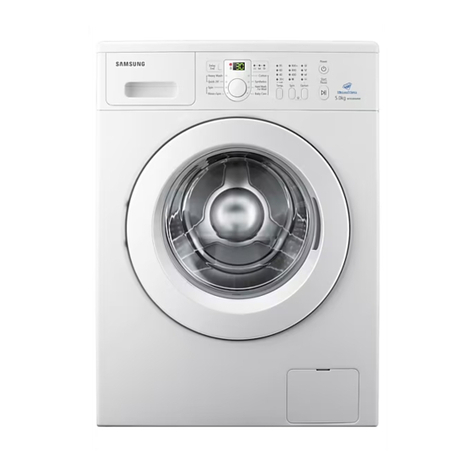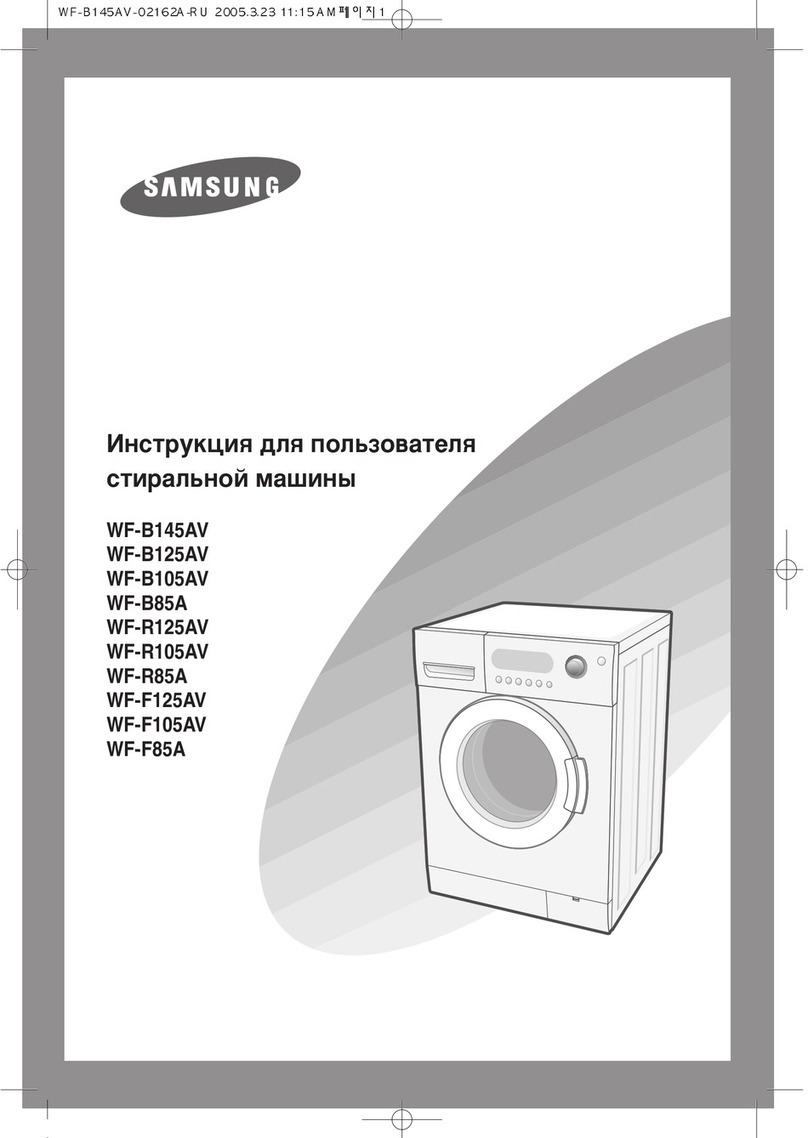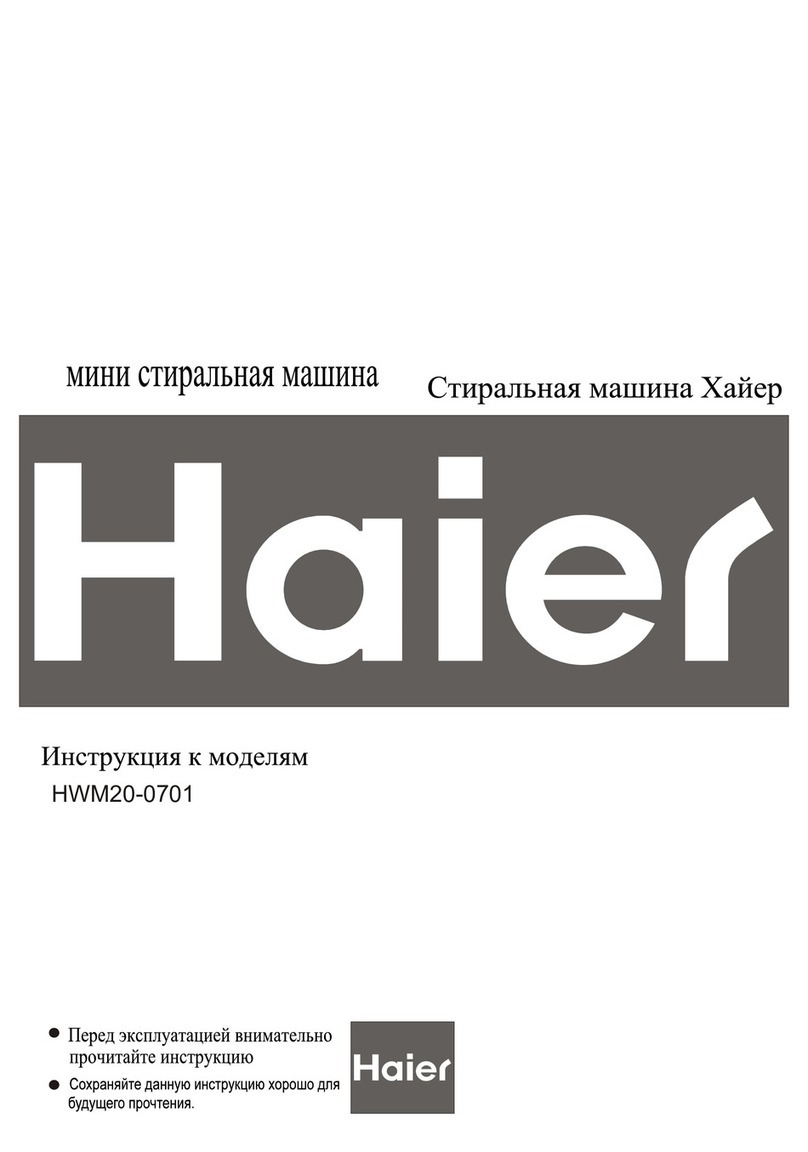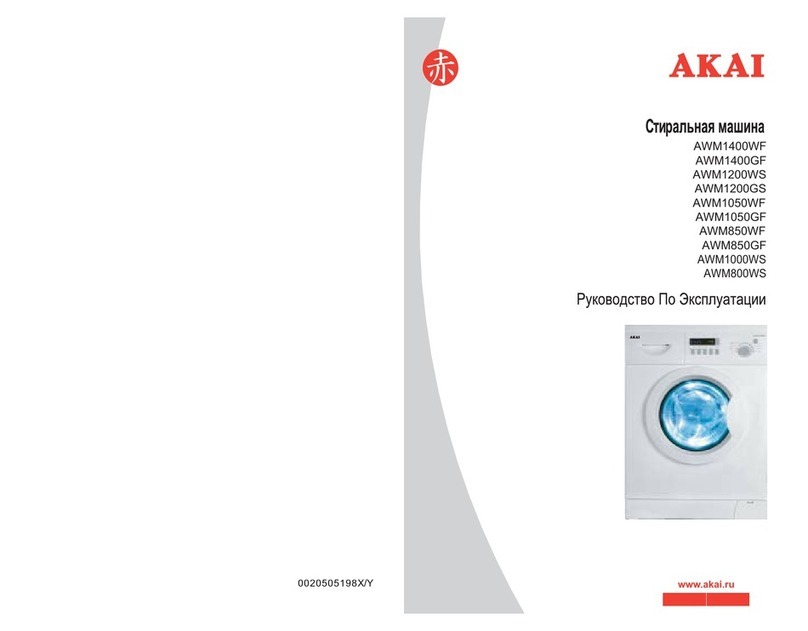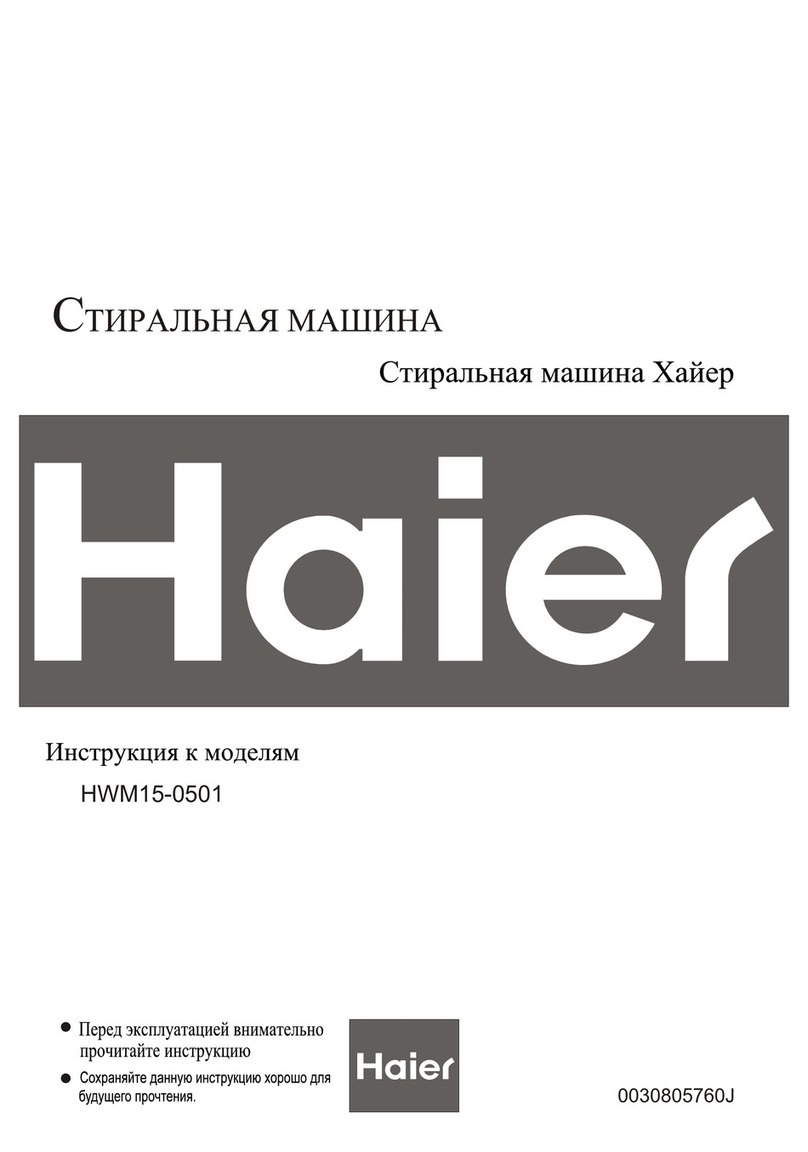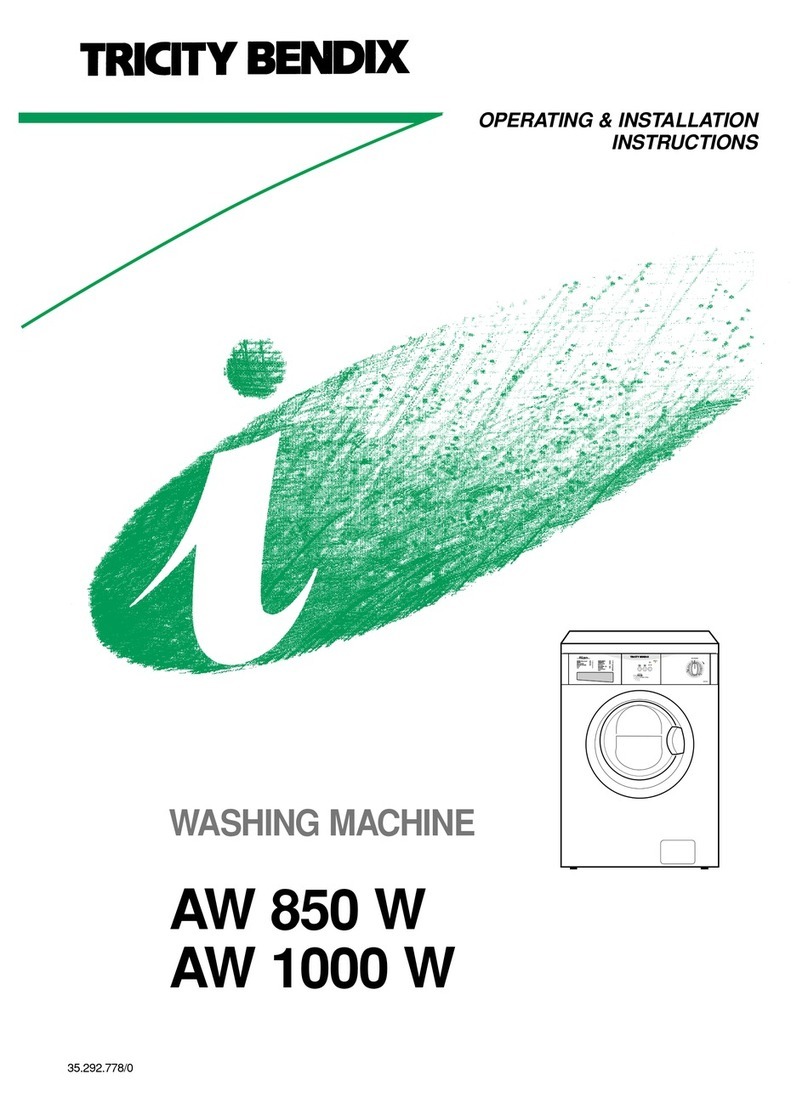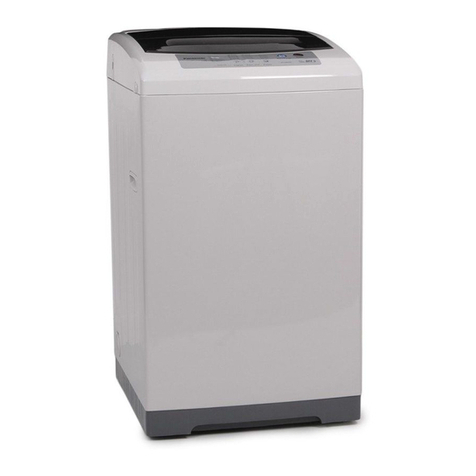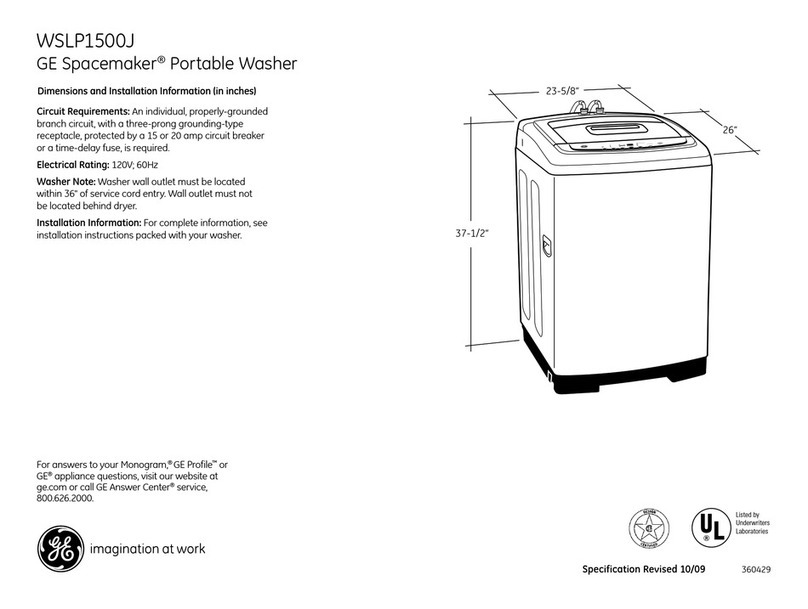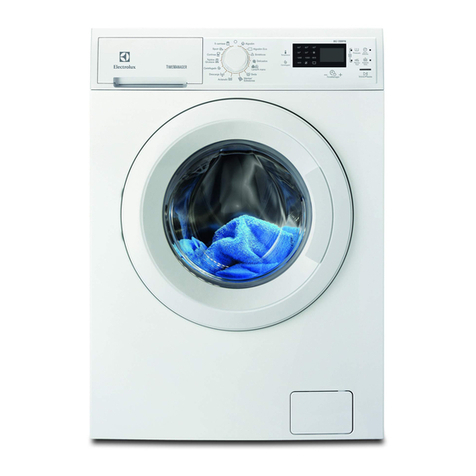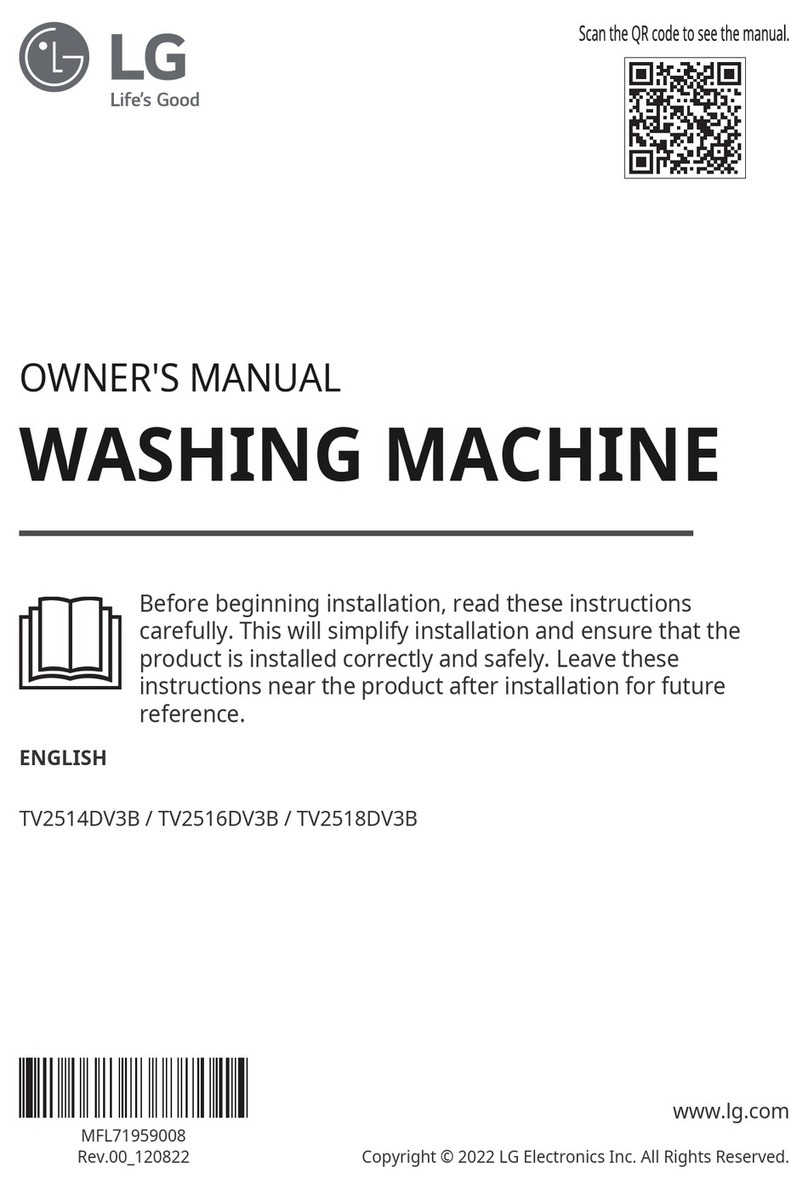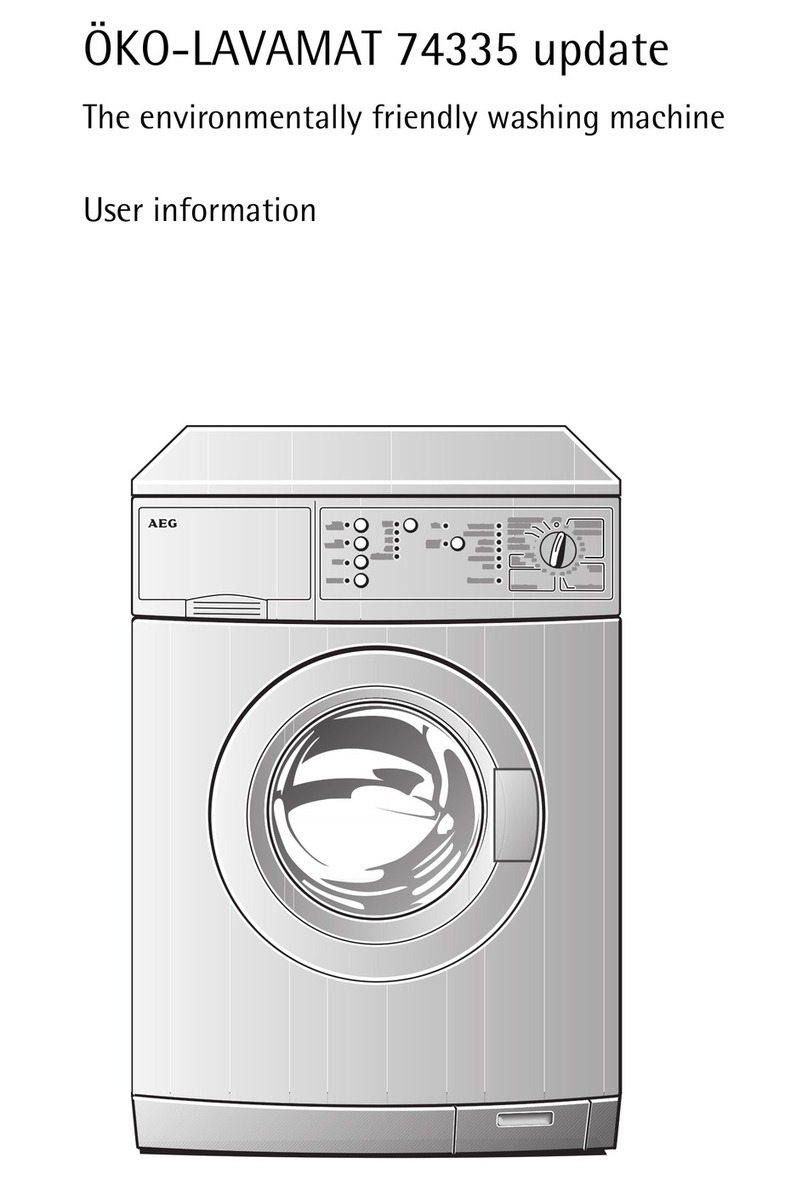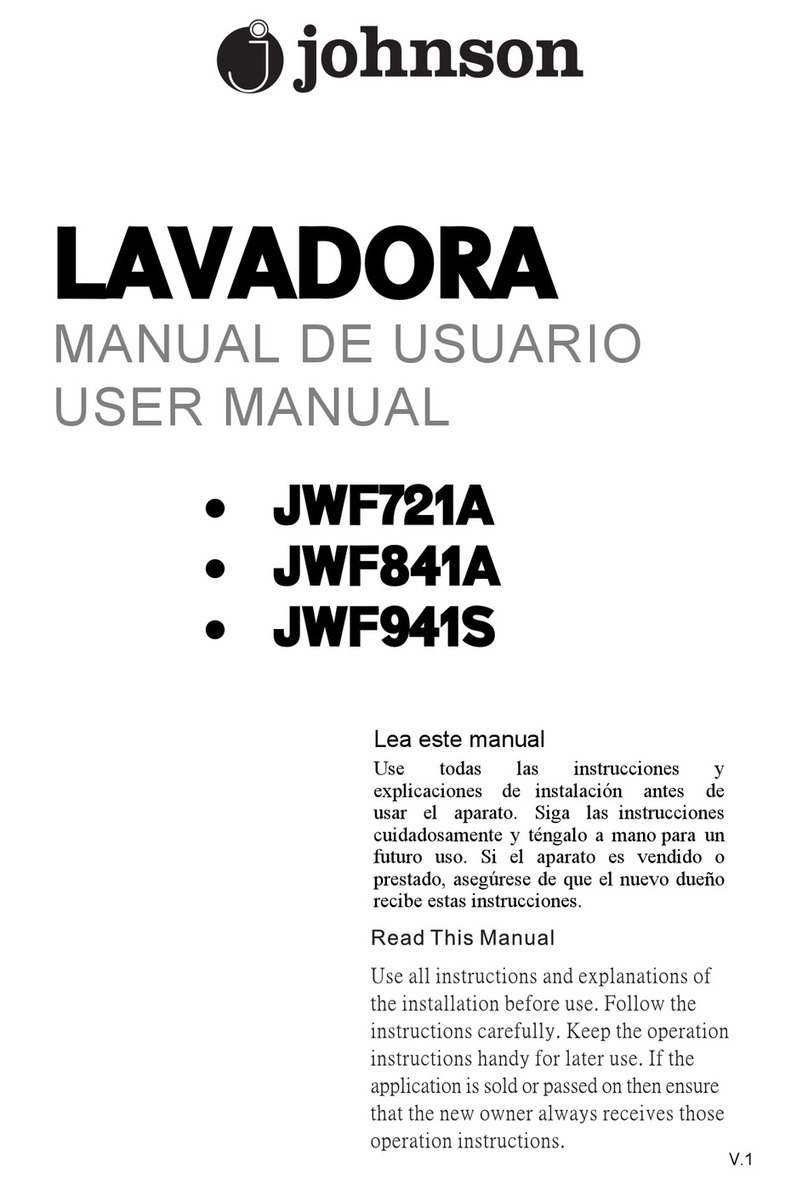Water...
Water Hardness
.....:........ Soft Water
__/ 0 to 10m]lligramSperliter'
_Moderately Hard
:-.:_. --;],;4_ Water
J300 milligrams
per liter
Hard Water
",' :7! "'
_"_ 7500milligramsperliter
"---_ZLLJ
__ Very Hard Water
.:._,.z-'- ;J_/ Over 500 milligrams
__ perliter
W1201EOB
Water hardness is measured in
grains per gallon (G.P.G.) or parts
per million (P.P.M.). To learn
your water hardness, call your
Water Department or State
Extension Service. Hard water
will not remove soil as well as
soft water and can result in gray,
clingy laundry. To get clothes
clean in hard water, use a
phosphate detergent or use more
detergent if using a non-
phosphate detergent. Do not use
soap.
Hard Water May Be Softened
By:
1. A mechanical water softener
installed in your home.
2. The use of a packaged water
conditioner.
Soft Water
Water should be soft enough to
allow soaps and detergents to
remove soil effectively. Clothes
will be whiter and brighter when
washed and rinsed in soft water.
Iron
If iron is present in the water, the
clothes may become an all-over
yellow or they may be stained
with brown or orange spots or
streaks. Iron is not always visible
in the water.
Solutions to Iron Problems
The installation of a water
softener will remove small
amounts of iron from the water
supply. The installation of an iron
filter may be necessary for more
severe cases. If the iron comes
from the pipes, it may be
sufficient just to let the water run
into the empty washer for about
one minute. This may help to
clear the pipes. Spin this water out
of the washtub before starting the
wash.
If iron comes from the water
heater, drain the healer
occasionally to remove the rust.
If the Iron Condition Cannot Be
Corrected
Prepare the wash water first by
adding detergent (not soap), then
add the clothes to the washtub.
Use a phosphate detergent. The
phosphate content of a detergent
is listed on the package side
panel.
Add a nonprecipitating water
conditioner to the washtub just
before the rinse water enters. Do
not use fabric softener in the rinse
water if a packaged water
conditioner is used.
Iron With Chlorine Bleach
The use of chlorine bleach with
water that contains iron will make
the rust discoloration worse. Use
an "all fabric" bleach.
Wash Temperature
Hot Water
Hot water will give the best
results of cleaning and sanitizing,
but it is not suitable for all items.
It is best for sturdy whites and
colorfast items, heavily soiled
items and diapers.
Warm Water
By using warm water, there is less
chance of color loss in items.
Warm water also reduces
wrinkling in pemmnent press
items. Use with light and
moderate soils, non-colorfast or
dark colors, permanent press,
silks, woolens, nylon, and acrylic.
Cold Water
Cold water is less effective in
cleaning than hot or warm water,
but it does minimize wrinkling
and color lading. Use it for
washing extra-sensitive clothes
and for the rinsing of all fabrics.
Energy
You can save energy when
washing by following a few
guidelines:
l. Heating water accounts for the
greatest energy expense when
washing. Save on heating
water by using cold rinses.
2. Wash full loads, but do not
overload.
3. Use soak cycles for heavily
soiled items to reduce wash
times.
4. Select a shorter wash time for
lightly soiled items.
140-°F [ l HOT
100-°F Io:! WARM
I
!
65-°F-- COLD
W1211EOA
38643 7


